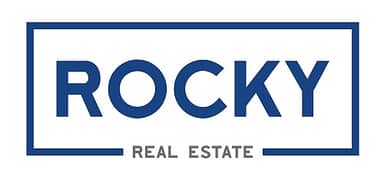Explore the UAE’s Property Rental Market
The UAE’s rental real estate market offers a rich mix of opportunities for residents across all emirates. Strategic urban planning, world-class amenities and a tenant-friendly legal framework make the country one of the most sought-after destinations for renters. While Dubai and Abu Dhabi remain front-runners, emerging rental hubs in Sharjah, Ras Al Khaimah and Ajman continue to grow in popularity. Affordable townhouses, luxurious waterfront apartments and family-friendly villas form the backbone of this vibrant market.
Detailed Insights on Renting a Property in the UAE
Renting in the UAE is a structured process governed by clear laws, with options suitable for all budget ranges. From furnished studio apartments in bustling neighbourhoods to sprawling family villas in gated communities, the choices are extensive. Factors such as contract terms, location, amenities and rental history influence tenant decisions. Using a registered agent and accessing authentic listings remains essential for a smooth leasing experience.
Top Residential Property Types
- Apartments: The most common rental option, ideal for professionals and small families. Options range from studios to penthouses, typically in high-rise buildings with shared facilities like gyms and pools.
- Villas: Favoured by larger families for their space, privacy, and outdoor areas. These homes often include gardens, multiple bedrooms, and are located near schools and parks.
- Townhouses: A balanced choice between apartments and villas, offering multi-level layouts with shared walls and community access. Popular among families and first-time renters for their practicality and value.
Living in the UAE: Why It’s the Ideal Place to Call Home?
A modern lifestyle, tax-free income and multicultural environment make the UAE an excellent place to live. Residents enjoy high-quality healthcare, education, public safety and a growing number of leisure and cultural experiences. Whether you choose to live in the heart of Dubai or in a serene coastal enclave in Fujairah, the UAE offers a unique blend of urban energy and peaceful surroundings.
Top Areas to Rent Properties in the UAE
Top Areas to Rent Apartments
- Dubai: Apartment rents in Dubai range from AED 42,000 to AED 518,000 per year, covering both affordable areas like International City and upscale locations like Palm Jumeirah.
- Abu Dhabi: In the capital, annual apartment rents fall between AED 32,000 and AED 228,000, from budget-friendly areas such as Mussafah to luxury zones like Saadiyat Island.
- Sharjah: Apartments in Sharjah typically rent for AED 18,000 to AED 78,000 per year, with a mix of affordable communities and waterfront neighbourhoods.
- Ras Al Khaimah: The emirate offers apartment rentals ranging from AED 24,000 to AED 60,000 annually, from practical urban zones to coastal residences.
- Ajman: Apartment rents in Ajman range between AED 20,000 and AED 68,000, making it one of the most affordable choices in the UAE.
Top Areas to Rent Villas
- Dubai: From the ultra-luxury estates of Emirates Hills to family villas in JVC and DAMAC Hills 2, Dubai offers a wide rental range. Villa rents average between AED 127K and AED 1.85M per year.
- Abu Dhabi: High-end communities like Saadiyat Island and Yas Island cater to luxury living, while Al Reef and MBZ City serve practical family needs. Annual villa rents in the capital typically range from AED 77K to AED 632K.
- Sharjah: Offering a mix of premium and affordable homes, villa rentals in Sharjah fall between AED 59K and AED 192K. Al Tai and Al Suyoh attract upscale tenants, while Al Qadisiya and Al Rahmaniya remain popular budget-friendly areas.
- Ras Al Khaimah: Beachfront villas in Mina Al Arab contrast with spacious, lower-cost homes in Al Dhait and Khuzam. Rents in RAK average from AED 60K to AED 174K annually.
- Ajman:Villa rents start from AED 50K and go up to AED 303K per year. Options ranging from high-end villas in Al Zorah to practical family units in Al Rawda.
All You Need to Know Before Renting a Property in the UAE
How to Choose the Right Rental Property Based on Budget and Lifestyle
Start by setting a budget and prioritising your lifestyle needs. For those seeking a vibrant social scene, areas like Dubai Marina are ideal. Families may prefer quieter communities with schools and parks, such as Mirdif or Khalifa City. Use Bayut’s Search 2.0 to filter properties by budget, location, and amenities.
Price Analysis and Key Considerations
How to Evaluate Property Prices Before Renting a Property in the UAE
Evaluating rental prices in the UAE requires a combination of market awareness and comparative analysis. Begin by reviewing recent listings and actual transactions within the same building, tower, or residential community. Compare units by size, floor level, furnishing, and included amenities to understand what constitutes a fair rate. For more accurate benchmarks, consult Bayut’s live rental data, which includes average rent trends per area and property type.
Additionally, consider:
- Service charges or utilities included or excluded in the rent.
- The property's proximity to transport links, business zones, and retail hubs.
- Future infrastructure developments or road improvements nearby that may affect rental value.
Understanding Rental Increases in the UAE
Rental increases are governed by each emirate’s housing authority, and rules may differ slightly. However, the core principle across the UAE is to ensure fairness between landlords and tenants.
- In Dubai, increases are regulated under the Rental Index issued by the Dubai Land Department (DLD).
- In Abu Dhabi, Sharjah, and other emirates, rent increases are typically capped by local decrees or municipal regulations, which aim to prevent unjustified hikes.
Tenants should:
- Always check their renewal terms and whether the landlord has issued proper written notice in advance.
- Use official rent calculators or contact local authorities to validate the legality of any proposed increase.
- Keep a copy of their Ejari certificate (in Dubai) or Tawtheeq registration (in Abu Dhabi), or other applicable tenancy documentation, to safeguard their position in case of disputes.
Can You Terminate a Lease Before It Expires in the UAE?
Yes, tenants can terminate their lease early, but the terms depend on the contract and emirate. Most tenancy agreements include an early termination clause, which typically involves a penalty equivalent to one or two months’ rent.
Important considerations:
- Provide written notice in line with the lease requirements, usually 60 or 90 days.
- Secure a mutual agreement with the landlord, especially in cases of relocation or employment changes.
- Keep documentation to support legal or financial exemptions, if applicable.
Rights and Responsibilities of Tenants in the UAE
Tenants’ Rights:
- Occupy a habitable, well-maintained property.
- Enjoy uninterrupted use of the premises as outlined in the contract.
- Request repairs for structural, electrical, or major plumbing issues.
Tenants’ Responsibilities:
- Maintain the unit’s cleanliness and basic upkeep.
- Avoid unauthorised modifications or subletting.
- Pay rent and utility bills on time.
- Return the property in a good, original condition.
Can You Rent a Shared Property in the UAE?
Yes, shared accommodation is permitted in many emirates, provided certain regulations are met:
- All occupants must be registered with the municipality or documented in the tenancy agreement.
- The property should comply with space-to-occupant ratios to avoid overcrowding.
- Shared housing is more common in designated zones, especially in Dubai, Sharjah, and Ajman, where affordable rentals are in high demand.
























